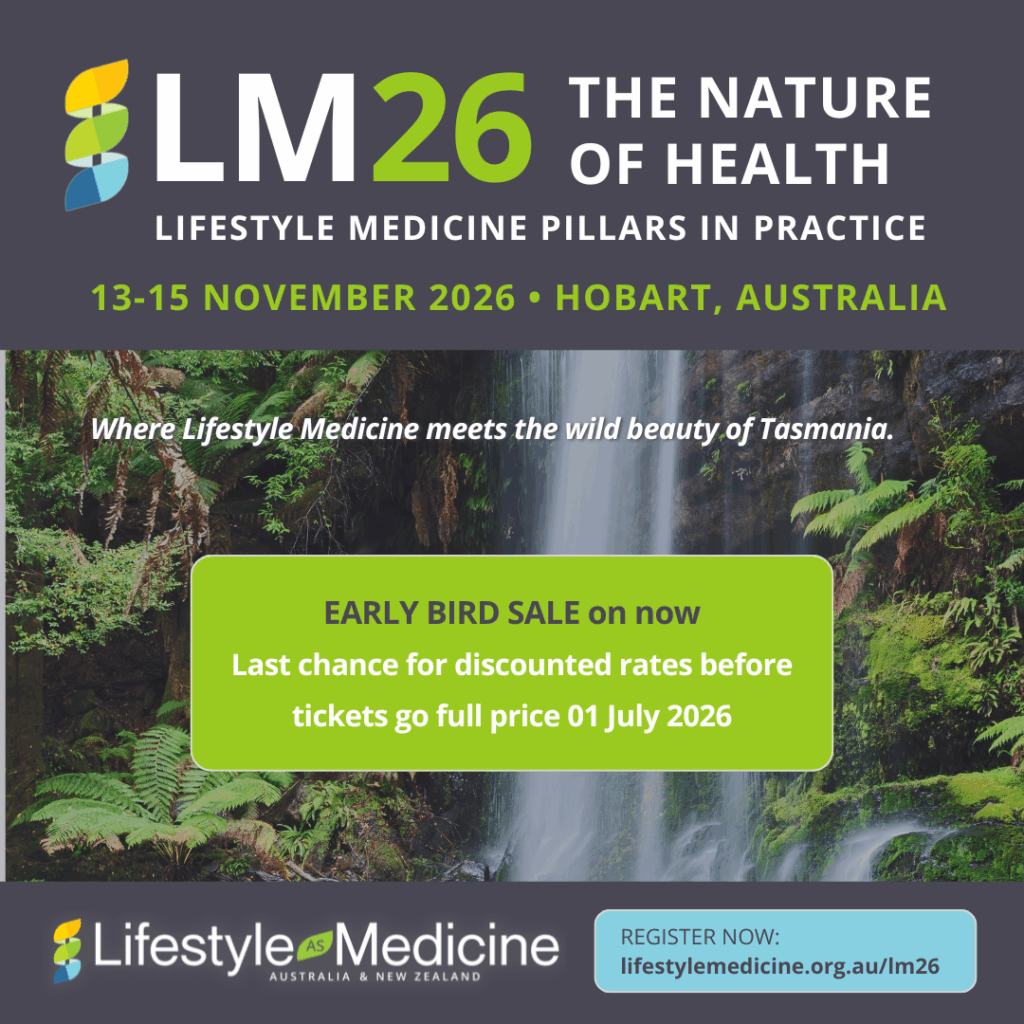
The effects of macronutrients on depression
Depression is typically thought of as a biochemical-based imbalance or a psychologically-rooted problem. On the contrary, nutrition can play a key role in the onset as well as severity and duration of depression.
Many of the noticeable changes in food patterns that precede depression are strikingly similar to biological symptoms of depression, such as loss of appetite, change in taste, or cravings for “comfort” food that usually high in sugar or fat.
Carbohydrates
When carbohydrates are consumed, it triggers the pancreas to produce insulin, which in turn helps us utilise glucose in our cells to produce energy. However, high glycaemic index (GI) or glycaemic load (GL) foods, such as sugary snacks or refined grain-based desserts, will trigger an insulin roller-coaster ride and thus create more stress for the body to deal with. The Women’s Health Initiative found that higher GI foods were associated with increased risk of depression1. The study also showed that progressively higher consumption of dietary added sugars was associated with increasing odds of incident depression. Moreover, a higher consumption of lactose, fibre, non-juice fruit, and vegetables was significantly associated with lower odds of incident depression, and non-whole/refined grain consumption was associated with increased odds of depression. A meta-analysis and systematic review found no significant association between either dietary GI or GL and odds of depression in cross-sectional studies, but they did find a significant positive association between dietary GI and depression in cohort studies, and that a significant effect of a high-GL diet consumption on risk of depression was seen in clinical trials2.
Hence, eating low GI foods, such as whole grains, root vegetables, and legumes will be more likely to provide a sustained and lasting effect on brain chemistry, mood and energy level than high GI foods.
Protein
What about protein? Humans need nine essential amino acids, meaning we cannot produce them from other sources. These are histidine, isoleucine, leucine, lysine, methionine, phenylalanine, threonine, tryptophan, and valine. Tryptophan is the precursor to serotonin, the neurotransmitter that regulates our mood, sleep and appetite. Dopamine and adrenaline’s precursor, tyrosine, although not an essential amino acid, is still an important amino acid, as has been shown in depletion studies that tyrosine-free subjects were less content, more apathetic, had significant differences in decision-making tasks and disrupted affect/reward-based processing characteristic of clinical depression3,4.
The National Health and Nutrition Examination Survey from 1971-1975 found that increased intake of protein demonstrated a protective effect among men but a deleterious effect among women5. The same National Health and Nutrition Examination Survey for the years 2007-2014 found that total protein intake and protein intake from milk and milk products might reduce the risk of depressive symptoms in United States adults6. Another national survey of the United States and South Korea showed that when the proportion of calories intake by protein increased by 10%, the prevalence of depression was significantly reduced both in the United States and South Korea, and that the low protein intake groups had significantly higher risk for depression than the normal protein intake groups in both countries7.
Fat
Are fats bad for mental health? Well, that depends on what types of fat we are talking about. Most of us have heard of the omega-3 fatty acids EPA and DHA, and that regular consumption of these polyunsaturated fatty acids (PUFA) are good for our hearts and brains.
A meta-analysis in 2019 showed an overall beneficial effect of omega-3 polyunsaturated fatty acids on depression symptoms, and when compared with placebo, pure EPA or EPA formulations demonstrated clinical benefits with a dose of <1g/day, whereas pure DHA and DHA-formulations did not exhibit such benefits8. However, the data is inconsistent for certain groups such as pregnant women, with one meta-analysis demonstrating no difference in depression scores when they were given omega-3 fatty acids as a monotherapy for treatment of depression9, while another showed significantly improved depressive symptoms in perinatal women10. When looking at actual fish consumption, large studies show that high-fish consumption can reduce the risk of depression11,12,13.
There is some discussion whether the effect may be due to taking omega-3 fatty acids as a supplement rather than as a dietary “food package” such as oily fish, and the preventive role of omega-3 PUFA may depend on other factors such as overall diet quality and the social environment.
Not only is the absolute level of omega-3 PUFA important, the ratio of omega-6 to omega-3 seems to be a determining factor for the development of depression as well. A 7-year prospective study showed that the omega 6:3 PUFA ratio is associated with an increased risk for mood disorders in young people at ultra-high risk of depression14. Similar findings of increased risk of depression and suicide risk were noted in smaller studies on pregnant women and older adults15,16,17.
Shall we avoid foods high in omega-6 fatty acids? Some of these foods are part of a healthy diet, such as walnuts, sunflower seeds, tofu and eggs, and when eaten as whole foods, are beneficial to our overall health. However, highly processed and refined industrial seed and vegetable oils should be avoided, and healthy oils such as olive oil, avocado oil and cold-pressed nut and seed oils can be used instead. Monounsaturated fatty acids have also shown some benefit in
The worst combo is a combined high-sugar, high-fat diet, which has been associated with more depressive symptoms18. Such high calorie obesogenic diets are not only nutrient-poor a lot of the times, but also contribute to metabolic disturbance, oxidative stress and inflammatory processes that may be linked to neuroinflammation, the hallmark feature of brain disorders19.
In summary, nutritional compounds might modulate depression associated biomarkers. In this context, several healthy foods such as olive oil, fish, nuts, legumes, dairy products, fruits, and vegetables have been inversely associated with the risk of depression and might also improve symptoms. In contrast western dietary patterns including the consumption of sweetened beverages, fried foods, processed meats, baked products have been shown to be associated with an increased risk of depression in longitudinal studies. Diet and nutrition offer key modifiable targets for the prevention of mental disorders20.
- Gangwisch JE, Hale L, Garcia L, et al. High glycemic index diet as a risk factor for depression: analyses from the Women’s Health Initiative. Am J Clin Nutr. 2015;102(2):454-463. doi:10.3945/ajcn.114.103846
- Salari-Moghaddam A, Saneei P, Larijani B, Esmaillzadeh A. Glycemic index, glycemic load, and depression: a systematic review and meta-analysis. Eur J Clin Nutr. 2019 Mar;73(3):356-365. doi: 10.1038/s41430-018-0258-z. Epub 2018 Jul 27. PMID: 30054563.
- Harmer CJ, McTavish SF, Clark L, Goodwin GM, Cowen PJ. Tyrosine depletion attenuates dopamine function in healthy volunteers. Psychopharmacology (Berl). 2001 Feb;154(1):105-11. doi: 10.1007/s002130000613.
- McLean A, Rubinsztein JS, Robbins TW, Sahakian BJ. The effects of tyrosine depletion in normal healthy volunteers: implications for unipolar depression. Psychopharmacology (Berl). 2004 Jan;171(3):286-97. doi: 10.1007/s00213-003-1586-8. Epub 2003 Sep 4.
- Wolfe AR, Arroyo C, Tedders SH, Li YF, Dai Q, Zhang J. Dietary protein and protein-rich food in relation to severely depressed mood: A 10 year follow-up of a national cohort. Prog Neuropsychopharmacol Biol Psychiatry. 2011 Jan 15;35(1):232-8. doi: 10.1016/j.pnpbp.2010.11.011. Epub 2010 Nov 23.
- Li Y, Zhang CX, Li SY, Zhang DF. Association between dietary protein intake and the risk of depressive symptoms in adults. Br J Nutr. 2020 Jun 14;123(11):1290-1301. doi: 10.1017/S0007114520000562. Epub 2020 Feb 20.
- Oh J, Yun K, Chae J-H, Kim T-S. Association Between Macronutrients Intake and Depression in the United States and South Korea. Front Psychiatry. 2020; 11: 207. doi: 10.3389/ fpsyt.2020.00207
- Liao YH, Xie B Zhang HM, He Q, Guo L, Subramaniapillai M, Fan BF, Lu CY, Mclntyer RS. Efficacy of omega-3 PUFAs in depression: A meta-analysis. Transl Psychiatry. 2019; 9: 190. doi: 10.1038/s41398-019-0515-5
- Liu WH Zhang CG, Gao PF, Liu H, Yang JF. Omega-3 Fatty acids as Monotherapy in Treating Depression in Pregnant Women: a Meta- Analysis of Randomized Controlled Trials. Iran J Pharm Res. 2017 Autumn; 16(4): 1593–1599.
- Zhang MM, Zou Y, Li SM, Wang L, Sun YH, Shi L, Lu L, Bao YP, L SX. The efficacy and safety of omega-3 fatty acids on depressive symptoms in perinatal women: a meta-analysis of randomized placebo-controlled trials. Transl Psychiatry. 2020; 10: 193. doi: 10.1038/s41398-020-00886-3
- Li F, Liu XQ, Zhang DF. Fish consumption and risk of depression: a meta-analysis. J Epidemiol Community Health. 2016 Mar;70(3):299-304. doi: 10.1136/jech-2015-206278. Epub 2015 Sep 10.
- Grosso G, Micek A, Marventano S, Castellano S, Mistretta A, Pajak A, Galvano F. Dietary n-3 PUFA, fish consumption and depression: A systematic review and meta-analysis of observational studies. J Affect Disord. 2016 Nov 15;205:269-281. doi: 10.1016/j.jad.2016.08.011. Epub 2016 Aug 16.
- Yang Y, Kim Y, Je Y. Fish consumption and risk of depression: Epidemiological evidence from prospective studies. Asia Pac Psychiatry. 2018 Dec;10(4):e12335. doi: 10.1111/appy.12335. Epub 2018 Sep 20.
- Berger ME, Smesny S, Kim SW, et al. Omega-6 to omega-3 polyunsaturated fatty acid ratio and subsequent mood disorders in young people with at-risk mental states: a 7-year longitudinal study. Transl Psychiatry. 2017;7(8):e1220. Published 2017 Aug 29. doi:10.1038/tp.2017.190
- Vaz JS, Kac G, Nardi AE, Hibbeln JR. Omega-6 fatty acids and greater likelihood of suicide risk and major depression in early pregnancy. J Affect Disord. 2014 Jan;152-154:76-82. doi: 10.1016/j.jad.2013.04.045. Epub 2013 May 31.
- Kiecolt-Glaser JK, Belury MA, Porter K, Beversdorf DQ, Lemeshow S, Glaser R. Depressive symptoms, omega-6:omega-3 fatty acids, and inflammation in older adults. Psychosom Med. 2007 Apr;69(3):217-24. doi: 10.1097/PSY.0b013e3180313a45. Epub 2007 Mar 30.
- Hoge A, Tabar V, Donneau AF, et al. Imbalance between Omega-6 and Omega-3 Polyunsaturated Fatty Acids in Early Pregnancy Is Predictive of Postpartum Depression in a Belgian Cohort. Nutrients. 2019;11(4):876. Published 2019 Apr 18. doi:10.3390/nu11040876
- Vermeulen E, Stronks K, Snijder MB, Schene AH, Lok A, de Vries JH, Visser M, Brouwer IA, Nicolaou M. A combined high-sugar and high-saturated-fat dietary pattern is associated with more depressive symptoms in a multi-ethnic population: the HELIUS (Healthy Life in an Urban Setting) study. Public Health Nutr. 2017 Sep;20(13):2374-2382. doi: 10.1017/S1368980017001550. Epub 2017 Jul 20.
- Melo HM, Santos LE, Ferreira ST. Diet-Derived Fatty Acids, Brain Inflammation, and Mental Health. Front Neurosci. 2019;13:265. Published 2019 Mar 26. doi:10.3389/fnins.2019.00265
- Khanna P, Chattu VK, Aeri B. Nutritional Aspects of Depression in Adolescents – A Systematic Review. Int J Prev Med. 2019; 10: 42. doi: 10.4103/ijpvm.IJPVM_400_18
This article has been written for the Australasian Society of Lifestyle Medicine (ASLM) by the documented original author. The views and opinions expressed in this article are solely those of the original author and do not necessarily represent the views and opinions of the ASLM or its Board.

